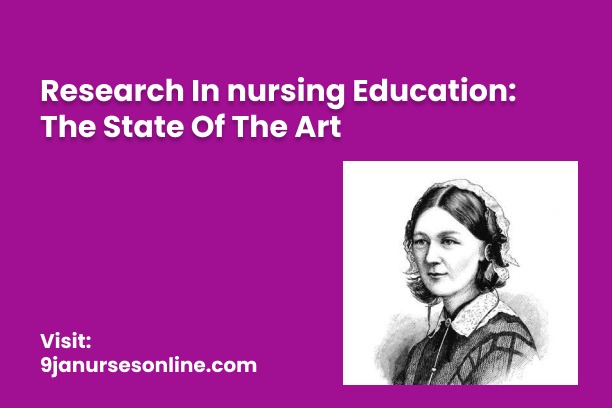RESEARCH IN NURSING EDUCATION: THE STATE OF THE ART
To establish trends and future directions for a research program in nursing education administration, a periodic reassessment of past achievements is required. This paper describes the state-of-the-art research in nursing education administration reported from 1956 through 1985. Using Dissertation Abstracts and the Index to Nursing Literature as data sources, a total of 84 studies were identified. Analysis of the data reveals that of the total, 82.1 percent were unpublished doctoral dissertations and 17.9 per cent were published in the nursing literature. Only 28.5 per cent of the studies were completed during the period from 1956 to 1975, whereas 71.5 per cent were conducted in the last decade.
Although considerable progress is evident, the results of the investigation confirm that relatively little research has been conducted in nursing education administration during the past thirty years. Based upon this analysis, certain long range outcomes judged desirable for educational administration in nursing as a field of study are projected Small private colleges interested in developing a graduate program in nursing need an information base on the institutional, faculty, and resource characteristics related to the initiation of a program.
Nursing research has a tremendous influence on current and future professional nursing practice, thus rendering it an essential component of the educational process. This article chronicles the learning experiences of two undergraduate nursing students who were provided with the opportunity to become team members in a study funded by the National Institute of Nursing Research.

The application process, the various learning opportunities and responsibilities performed by the students, and the benefits and outcomes of the experience are described. The authors hope that by sharing their learning experiences, more students will be given similar opportunities using the strategies presented in this article. Nursing research is critical to the nursing profession and is necessary for continuing advancements that promote optimal nursing care.
Throughout the 21st century, the role of nurse has evolved significantly. Nurses work in a variety of settings, including the hospital, the classroom, the community health department, the business sector, home health care, and the laboratory. Although each role carries different responsibilities, the primary goal of a professional nurse remains the same: to be the client’s advocate and provide optimal care on the basis of evidence obtained through research.
READ THIS: HOW TO MIGRATE TO UK AS A NURSE FROM NIGERIA
Baccalaureate programs in the United States prepare students for entry-level nursing positions. The focus is to care for individuals throughout the human life span. Knowledge is acquired from textbooks, classroom and Web-based instruction, simulation, and clinical experiences. The goal of all programs is for students to graduate as safe, entry-level professionals, having received a well-rounded exposure to the nursing field. Students are exposed to evidence-based nursing practice throughout their curriculum; however, the allocated time for nursing research is often limited. Many programs require only one 3-credit hour course for nursing research. This amount of time is limited, despite the broad spectrum of nursing research and its influence on current and future nursing care.
Research is typically not among the traditional responsibilities of an entry-level nurse. Many nurses are involved in either direct patient care or administrative aspects of health care. Nursing research is a growing field in which individuals within the profession can contribute a variety of skills and experiences to the science of nursing care.
There are frequent misconceptions as to what nursing research is. Some individuals do not even know how to begin to define nursing research. According to Polit and Beck (2006), nursing research is: systematic inquiry designed to develop knowledge about issues of importance to nurses, including nursing practice, nursing education, and nursing administration. (p. 4)



